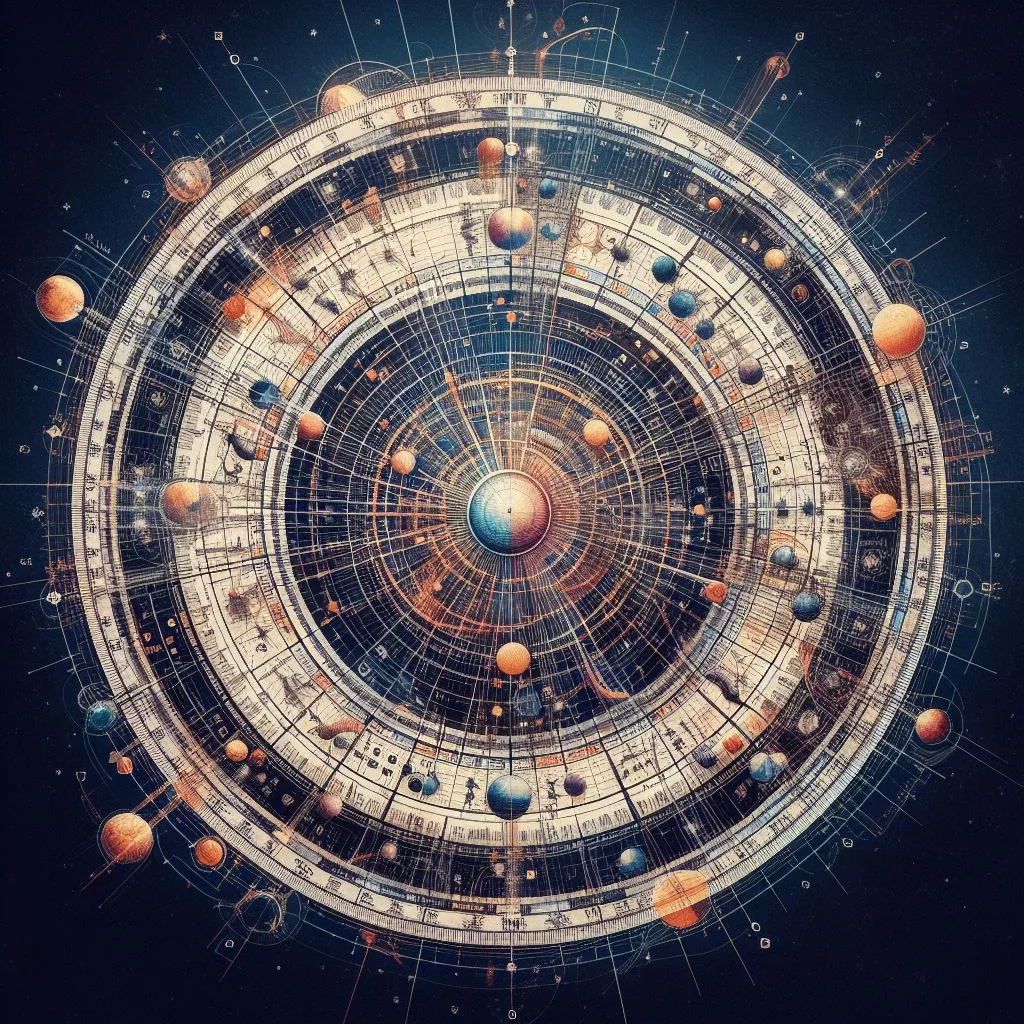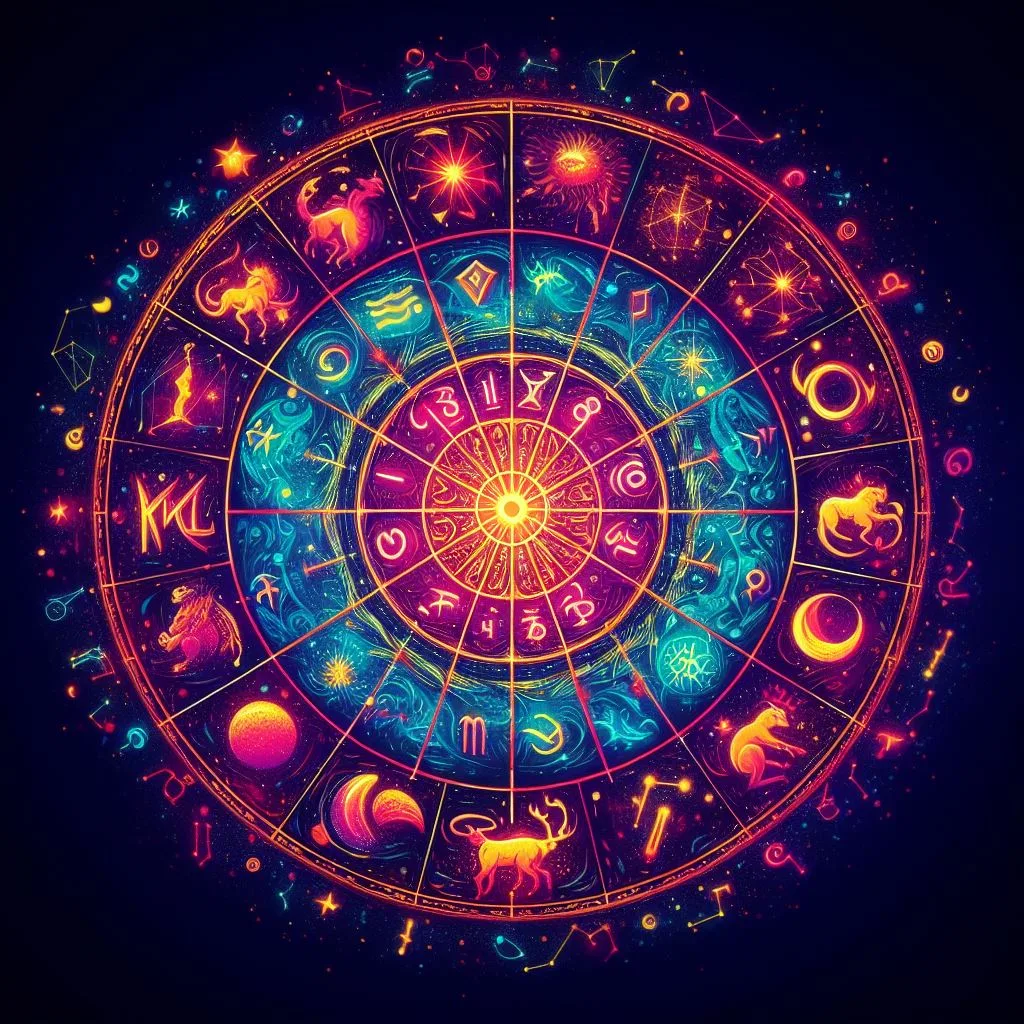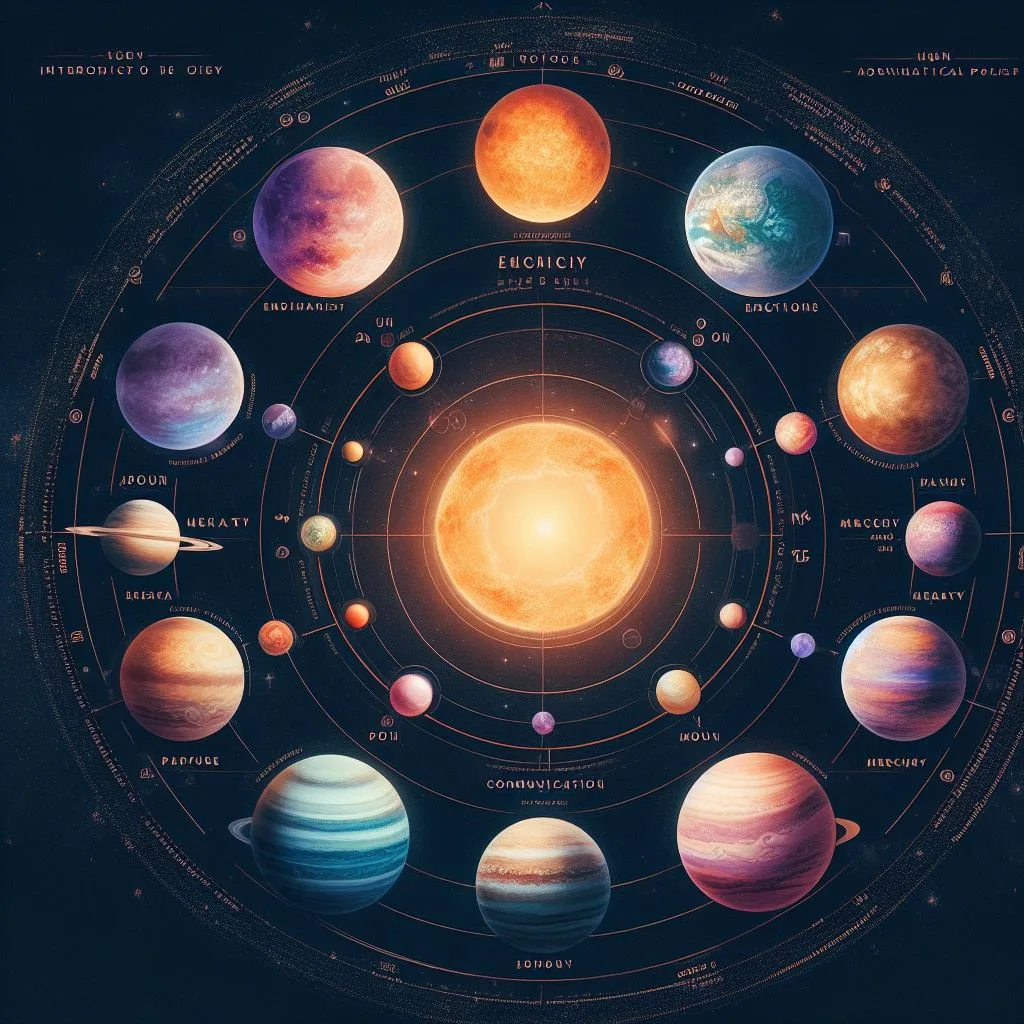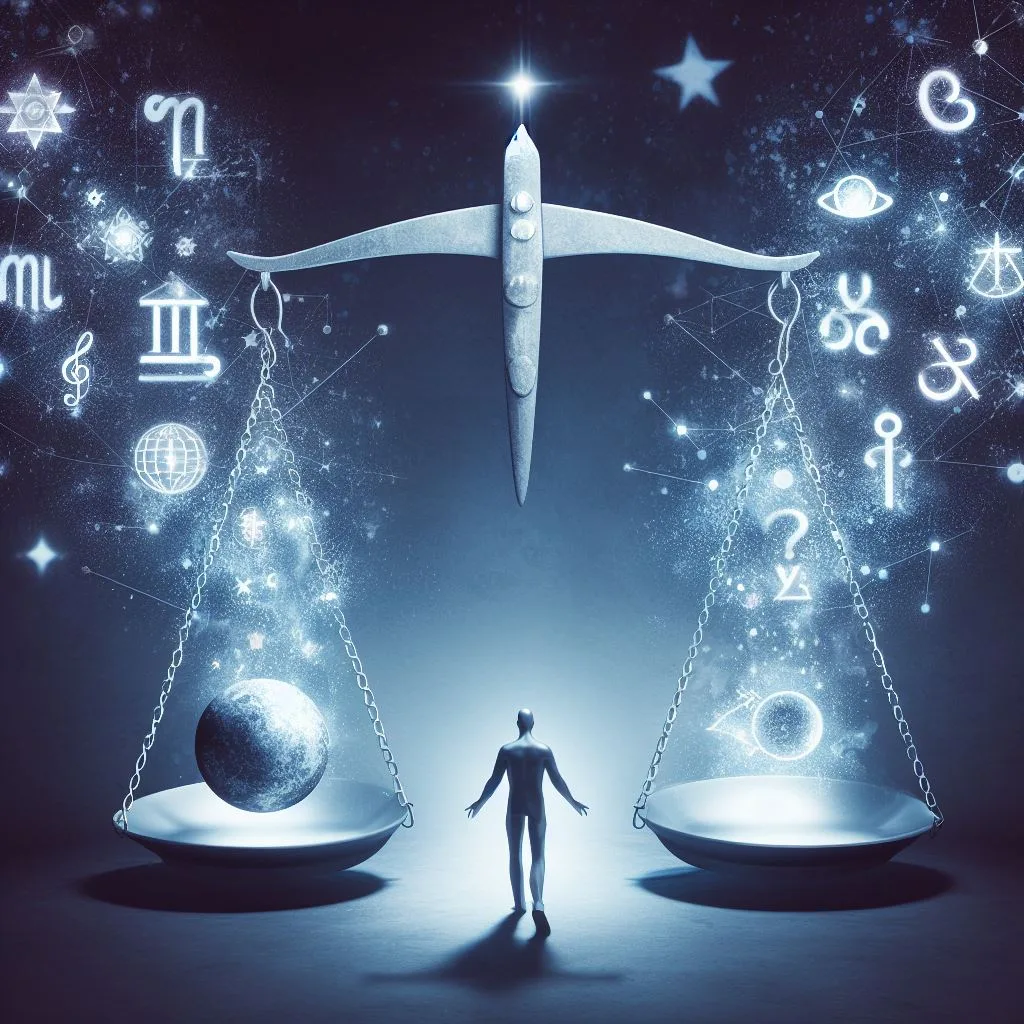
Astrology: Unveiling the Cosmic Blueprint
Astrology is a subject that has intrigued, puzzled, and captivated humanity for millennia.
article by Priya Deshmukh
From ancient Babylonians charting the stars to the modern-day individual checking their daily horoscope, this celestial science continues to influence our understanding of life and fate. But what exactly is astrology, and how does it work? In this article, we'll demystify ancient art and dive deep into its mechanisms.

Astrology: The Basics
At its core, astrology is the study of the positions and movements of celestial bodies—primarily the planets and the stars—and their potential influence on human affairs and natural phenomena. While many dismiss it as mere superstition, millions worldwide rely on astrological insights for guidance in their personal and professional lives.
The Zodiac & Birth Charts
Central to astrology is the concept of the zodiac—a belt of the heavens divided into twelve equal parts, each named after the constellation that appears in it. These are Aries, Taurus, Gemini, Cancer, Leo, Virgo, Libra, Scorpio, Sagittarius, Capricorn, Aquarius, and Pisces.

When you're born, the position of the planets, sun, and moon within these zodiac signs determines your astrological birth chart or natal chart. This chart serves as a celestial snapshot of the cosmic energies at play at the moment of your birth and provides a blueprint for understanding your personality, strengths, challenges, and life's path.
The Planets & Houses
In astrology, each planet represents specific energies, emotions, and aspects of one's life. For instance: The Sun represents your core self and ego. The Moon symbolizes your emotions, subconscious, and inner self. Mercury is all about communication, intellect, and how you process information.

Each planet's position in the zodiac and its relation to other planets—known as "aspects"—can provide profound insights into an individual's traits and tendencies. Furthermore, the natal chart is divided into twelve 'houses', each governing different life areas, such as career, relationships, and health. The planets' positions in these houses provide further context, making the birth chart an intricate web of potential and destiny.
How Does Astrology Work?
The big question: how can celestial objects millions of miles away influence our lives? Astrologers believe that the universe is interconnected, and the patterns and positions of celestial bodies reflect the cosmic energies that permeate our world.
While skeptics argue there's no scientific basis for astrology, many proponents liken it to a symbolic language—a way to interpret and understand the subtle energies that influence our lives. It's not about predestination but rather about understanding one's potential and tendencies.
Transits & Predictive Astrology
Beyond the birth chart, astrologers often study transits, which involve the current positions of the planets and how they interact with one's natal chart. These transits can suggest periods of growth, challenge, or transformation and help individuals prepare for upcoming life events.

The Role Of Free Will
It's crucial to understand that while astrology provides insights and potential paths, it doesn’t dictate our fate. We all have free will, and life's choices remain ours to make. Astrology merely offers a cosmic perspective, allowing us to make informed decisions and understand ourselves better.
Astrology, with its rich history and profound insights, remains an enigmatic and intriguing subject. Whether you're a skeptic or a believer, there's no denying its pervasive influence on cultures worldwide. By exploring the cosmos's intricate dance, we're given a unique lens through which we can view and navigate our earthly journey.
If you found this article enlightening and wish to explore more about astrology or other esoteric subjects, be sure to bookmark our website and join us on this thrilling journey!
Published: 10/13/2023
Modified: 10/23/2023
More predictions
Come back here soon to learn more about yourself and your future





